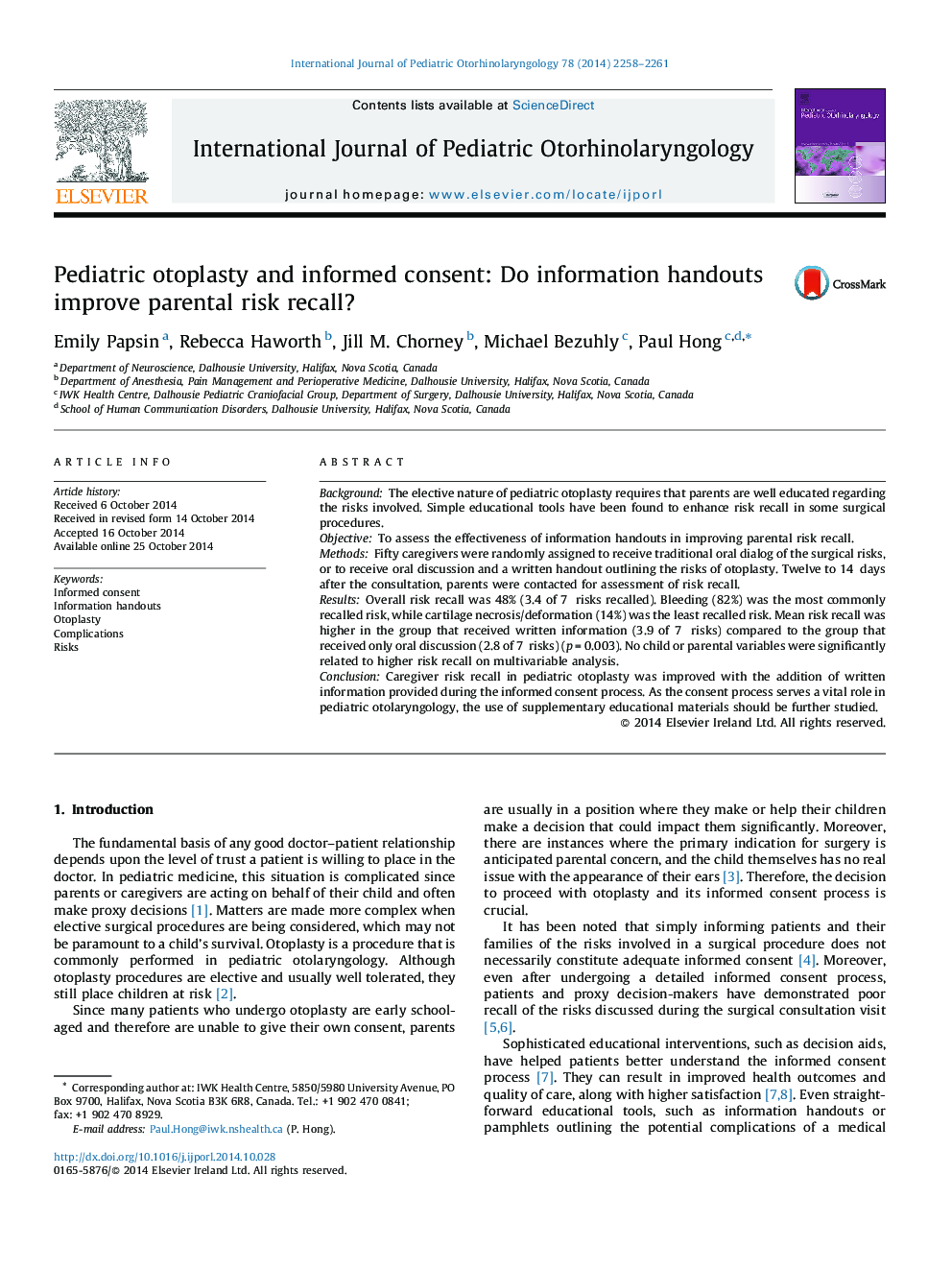| Article ID | Journal | Published Year | Pages | File Type |
|---|---|---|---|---|
| 4111819 | International Journal of Pediatric Otorhinolaryngology | 2014 | 4 Pages |
BackgroundThe elective nature of pediatric otoplasty requires that parents are well educated regarding the risks involved. Simple educational tools have been found to enhance risk recall in some surgical procedures.ObjectiveTo assess the effectiveness of information handouts in improving parental risk recall.MethodsFifty caregivers were randomly assigned to receive traditional oral dialog of the surgical risks, or to receive oral discussion and a written handout outlining the risks of otoplasty. Twelve to 14 days after the consultation, parents were contacted for assessment of risk recall.ResultsOverall risk recall was 48% (3.4 of 7 risks recalled). Bleeding (82%) was the most commonly recalled risk, while cartilage necrosis/deformation (14%) was the least recalled risk. Mean risk recall was higher in the group that received written information (3.9 of 7 risks) compared to the group that received only oral discussion (2.8 of 7 risks) (p = 0.003). No child or parental variables were significantly related to higher risk recall on multivariable analysis.ConclusionCaregiver risk recall in pediatric otoplasty was improved with the addition of written information provided during the informed consent process. As the consent process serves a vital role in pediatric otolaryngology, the use of supplementary educational materials should be further studied.
